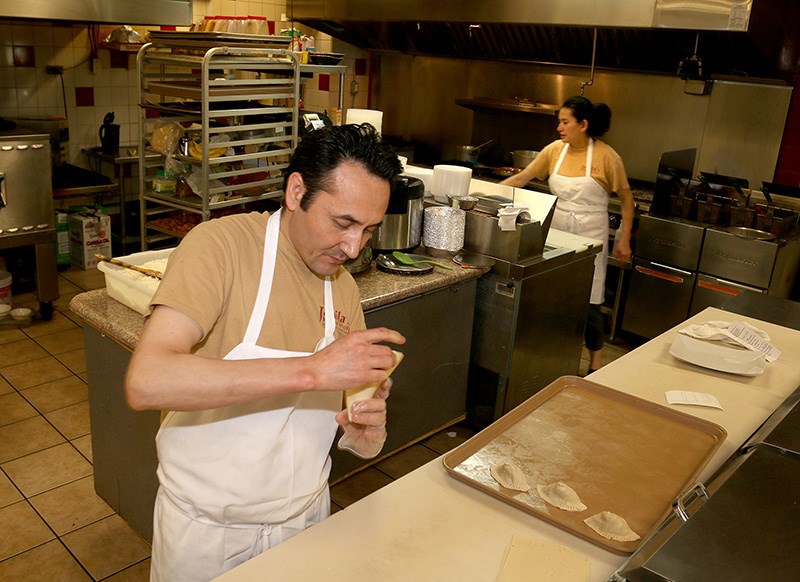A Coquitlam restaurant with a history of helping out in the community is stepping up to help brighten the Christmas season and beyond for some people who are struggling.
Jamila’s Kitchen is donating all of the net profits from its virtual pizza outlet, Pizza Island, through the months of November and December to SHARE Family and Community Services.
Going forward, Jamila’s owner Malik Malikzada said 50 per cent of the profits from all the delivery pizzas through 2022 will go to SHARE.
He hopes other local businesses will pick up the mantle as well.
Malikzada said technology makes it easy.
While pizzas have always been part of the offerings of his restaurant that specializes in Afghan dishes that fuse with flavours from other cultures like Greek and Italian, Malikzada said he decided to split off a specific menu that’s only available through the online delivery app Skip the Dishes.
That way, the business side of the app tracks all the orders, processes payments, takes a cut then provides an accounting of proceeds that are remitted to him.
From there, Malikzada said, it’s simple math for him to deduct his expenses and determine the net profit from every pizza. “If you look at it as a way to help, it’s a piece of cake,” he said.
Well, pie actually, as Malikzada figures the familiar flavours and enduring popularity of pizza will help make the initiative a rousing success that can set an example for other businesses in the community to emulate.
“It’s a win-win situation,” he said. “The customer gets to feel good their money goes to the community.”
Malikzada said his own situation as a refugee of the Afghan civil war in the 1990s — landing in Canada with very little but his family — has fuelled his appreciation for the strength of community.
But that support must be ongoing, not just in times of crisis.
That’s why his business continues to offer free meals to anyone who says they can’t afford to pay and why his latest effort is in partnership with SHARE, a non-profit organization that provides support for local families struggling with necessities like a roof over their heads or food in their fridge.
“When a problem comes up, everyone rushes in to help,” Malikzada said. “But getting that to become a sustainable, long-term commitment to the community is the challenge.”




